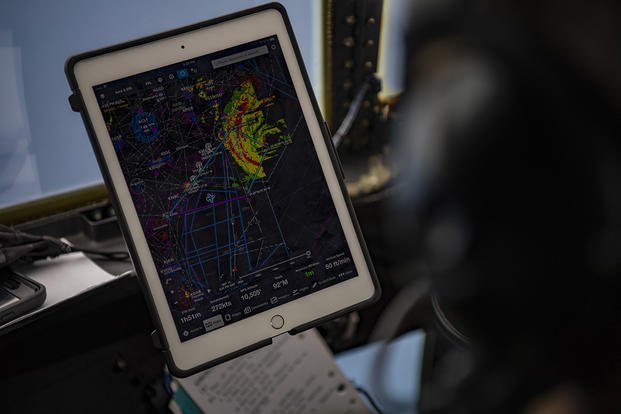Hurricane season overlaps moving season, as most people undertake their permanent change of station (PCS) move during the summer and the storm season technically runs from June through November.
You may think this doesn't affect you if you aren't moving to the Gulf Coast or the East Coast, but think again.
Moving this summer is already a bit ... weird. We're seeing a drastic difference in amenities, rules and quarantine periods across the states. Hotels aren't all open as advertised and, with no extra leave days authorized, there is no room for errors. Hurricanes just make this more stressful.
Those of you moving from Kansas to Washington state probably don't need to worry as much about hurricane season, but it's always a good idea to stay up-to-date on emergency preparedness procedures as they change and are impacted by COVID-19. (No area is immune to a natural disaster, and a lot of these changes may be implemented where you live, too.)
Here are some tips to prepare for hurricane season during the "challenging times" that we're all sick of hearing about.
1. Prepare Now
We're already in hurricane season, but it's not too late to prepare. Because of the pandemic, it's harder to find things in stores and Amazon is running a bit behind, so start now. Ideally, you can get everything you need delivered to your door, either with grocery delivery or through the mail. Try to find soap, hand sanitizer and at least two masks for each person.
2. Medications
You may have noticed it's more complicated to fill prescriptions because of limitations on how many people can be in the pharmacy at a time. Consider signing up for Express Scripts or other mail order delivery of your regular meds so you don't run out.
3. Pay Attention
Your local evacuation plan likely doesn't look the same this year. Shelters are doing things differently, and masks may be required. Facilities probably can't hold as many people as before because of social distancing guidelines. Know where you are supposed to go, have several backups and make sure you can take your pets if necessary.
4. Look Out for Others
Particularly in the military community, we take care of each other during disasters. Our service members are often away (because why would they be home during a hurricane?) or working longer hours because of the disaster. When you check on your friends and neighbors, keep in mind that social distancing is still recommended.
5. Be Patient.
If your power goes out, it may take longer than normal to resume services. The same goes for the internet, gas lines, downed trees, etc. Things are just moving at a slower pace. Also, if you are injured or sick and need to see a doctor, appointments may be limited or delayed. Make sure to call ahead and get advice on how quickly you need to be seen.
6. Give Yourself a Break.
Everyone is dealing with something right now. We're tired of the unknown, stressed out and exhausted. Adding a natural disaster to the mix may just be the last straw. Take time now to develop a plan where you can take a break, even during a hurricane.
For more details on how to prepare for the 2020 hurricane season, check out Ready.gov's checklists and the Centers for Disease Control and Prevention's guidelines on preparation.
Keep Up with the Ins and Outs of Military Life
For the latest military news and tips on military family benefits and more, subscribe to Military.com and have the information you need delivered directly to your inbox.
--Rebecca Alwine can be reached at rebecca.alwine@monster.com. Follow her on Twitter @rebecca_alwine.










